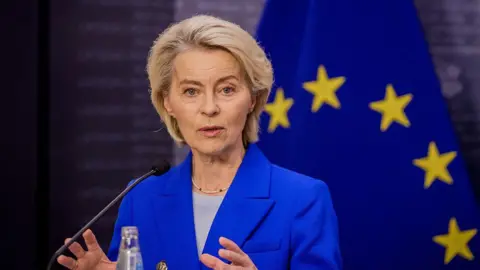The EU’s Court of Justice has delivered a significant verdict regarding Malta's golden passport scheme, declaring that the program violates European law. This controversial scheme allows non-EU nationals to gain Maltese citizenship through substantial financial investment, including a minimum payment of €600,000, property acquisition, and a charitable contribution of €10,000. The court emphasized that the practice equates to a commercial transaction for citizenship, contravening the principles of EU law.
Initiated in 2022 by the European Commission, the case sought to challenge these citizenship offerings that undermine the integrity of nationality acquisition in the EU. In its ruling, the court remarked that citizenship should not be viewed as a customer transaction, and granting nationality should uphold mutual trust among EU member states.
Former Prime Minister Joseph Muscat described the court's decision as "political," suggesting that Malta might still continue the program with certain modifications. This ruling could lead to significant fines for Malta if the government fails to conform to the judgment.
The golden passport program faced previous scrutiny, especially after its suspension for Russian and Belarusian applicants amidst geopolitical tensions stemming from the war in Ukraine. Malta has consistently defended its interpretation of EU treaties, asserting that member states retain the right to determine their citizenship laws. However, insecurity concerns such as money laundering and the risk of corruption associated with investor citizenship programs prompted strong objections from the EU.
While the Advocate General Anthony Collins had previously stated that EU law did not mandate a "genuine link" between a nationality applicant and the country, the court's ruling now places firm limitations on such citizenship models. The EU’s stance encourages member states to abolish these investor citizenship schemes that have been seen as compromising security and trust on a broader community level.
Initiated in 2022 by the European Commission, the case sought to challenge these citizenship offerings that undermine the integrity of nationality acquisition in the EU. In its ruling, the court remarked that citizenship should not be viewed as a customer transaction, and granting nationality should uphold mutual trust among EU member states.
Former Prime Minister Joseph Muscat described the court's decision as "political," suggesting that Malta might still continue the program with certain modifications. This ruling could lead to significant fines for Malta if the government fails to conform to the judgment.
The golden passport program faced previous scrutiny, especially after its suspension for Russian and Belarusian applicants amidst geopolitical tensions stemming from the war in Ukraine. Malta has consistently defended its interpretation of EU treaties, asserting that member states retain the right to determine their citizenship laws. However, insecurity concerns such as money laundering and the risk of corruption associated with investor citizenship programs prompted strong objections from the EU.
While the Advocate General Anthony Collins had previously stated that EU law did not mandate a "genuine link" between a nationality applicant and the country, the court's ruling now places firm limitations on such citizenship models. The EU’s stance encourages member states to abolish these investor citizenship schemes that have been seen as compromising security and trust on a broader community level.




















